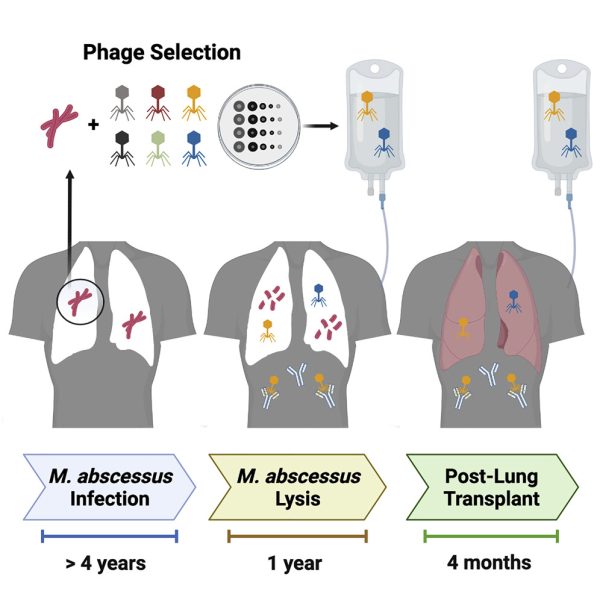Phage Used to Clear Antibiotic-Resistant Lung Infection for Cystic Fibrosis Patient
Date: 16.5.2022
In recent years, investigators have identified new wild-type phage strains and molecular mechanisms to enable researchers to engineer phage viruses to target specific bacteria.
 Now, for the first time, researchers have successfully used bacteriophages to treat an antibiotic-resistant mycobacterial lung infection, clearing the way for a young patient with cystic fibrosis to receive a life-saving lung transplant.
Now, for the first time, researchers have successfully used bacteriophages to treat an antibiotic-resistant mycobacterial lung infection, clearing the way for a young patient with cystic fibrosis to receive a life-saving lung transplant.
“We had tried unsuccessfully for years to clear the mycobacterial infection with a variety of antibiotics,” explained lead study investigator Jerry Nick, MD, director of the adult cystic fibrosis program at National Jewish Health. “When we used the bacteria’s own natural enemies, we were able to clear the infection, which resulted in a successful lung transplant.”
Cystic fibrosis is an inherited disease that causes a buildup of thick mucus in the lungs, leading to repeated bacterial infections that damage the lungs and can cause respiratory failure. Although new treatments have greatly improved the prognosis for people with cystic fibrosis, life expectancy remains significantly reduced.
Mycobacteria are a common and widespread genus of bacteria that can cause tuberculosis, leprosy, and nontuberculous mycobacterial (NTM) infections. Mycobacterium abscessus is a particularly aggressive and challenging NTM infection. Combinations of multiple antibiotics and treatment extending a year or longer are often unsuccessful.
“I am so grateful for the effort, persistence, and creativity of all the people who were involved in my treatment,” said Jarrod Johnson, recipient of the lung transplant. “I thought I was going to die. They have literally saved my life.”























